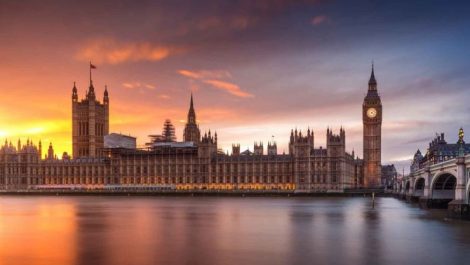It isn’t just the UK Government what has implemented unprecedented measures over the past few weeks.
Here are some of the steps that have been taken by countries across the globe.
Germany
The German Federal Government has pledged ‘unlimited cash’ to businesses affected by the Coronavirus in a move described as unprecedented in the country’s post-war history.
Finance minister Olaf Scholz said the government would provide unlimited liquidity assistance to German companies whose supply chains have been interrupted, leading to production stoppages across the country.
The package will depend upon a huge increase in the number and size of loans provided by KfW, the state development bank. Companies will also be allowed to defer billions of euros in tax payments.
Denmark
Danish Prime Minister, Mette Frederiksen, has announced that 2.6 billion kroner has been set aside to protect companies and workers during the crisis. The scheme, which will be in place for three months will see the Government cover 75% of the salaries of all employees (paid on a monthly basis) who would otherwise have lost their jobs.
For those who are paid on an hourly basis this will rise to 90% up to a limit of 26,000 kroner per month.
The scheme is also retrospective, meaning that those who have already lost their jobs, or are out of pocket, should be able to get their jobs and cash returned to them.
France
Finance minister Bruno Le Maire has confirmed that €45 billion in aid will be made available to small businesses and the hardest hit sectors of the French economy. More than three million companies are expected to be effected by the quarantine measures Paris has implemented.
Mr Le Maire also confirmed that the Government would guarantee bank loans up to €300 billion.
The money France is injecting into the economy will take the form of reduced social security contributions.
Spain
Prime Minister Pedro Sánchez has declared a ‘state of alert’, which gives his administration the ability to take direct control of manufacturing facilities and restrict the movement of the Spanish population.
Mr Sánchez has also unveiled plans to inject €200 billion into the national economy, with €117 billion coming directly from the public purse. The PM described the move as the ‘largest allocation of resources in Spanish history.’
In Spain approximately 100,000 people have already been made either temporarily redundant or lost their jobs entirely.
USA
In the USA the Republican majority in the Senate has rolled out a $1 trillion economic stimulus to protect US businesses and the general public.
Though the package needs to be agreed by the Democratic Party, it currently includes direct payments to Americans under a certain income threshold, $200 billion in loans to airlines and other sectors of the economy badly hit and $300 billion in forgivable bridge loans for small businesses.
It also contains ‘recovery rebates’ which could amount to as much as $1200 for individual Americans to help them keep their heads above water.






